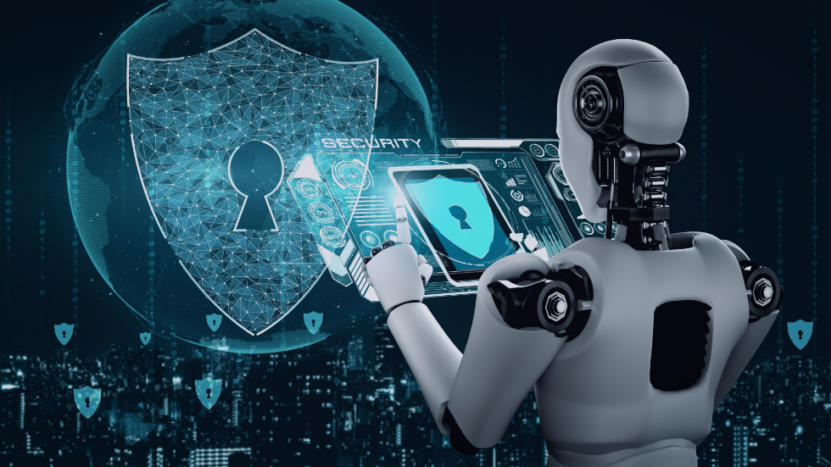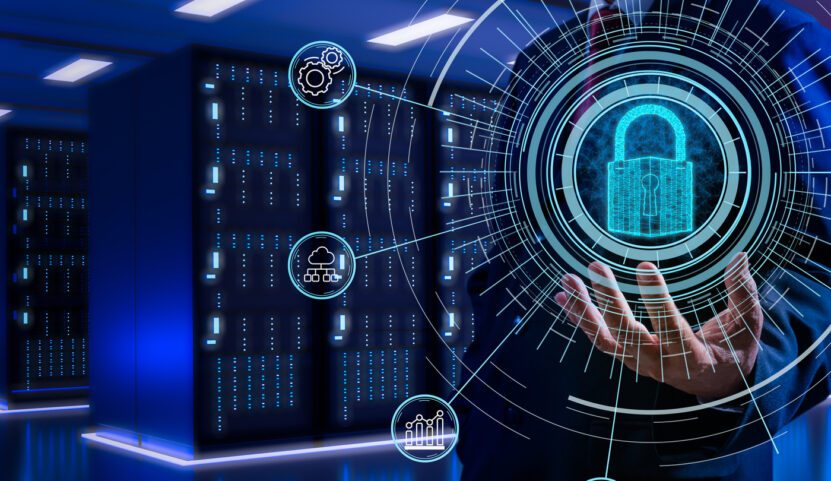Cybersecurity is an industry that is constantly changing. Cybersecurity is vital to protecting most businesses from cyber threats and attacks. As technology advances, new vulnerabilities emerge, requiring cybersecurity professionals to stay up-to-date on the latest trends and techniques to effectively protect their organizations.
Cybersecurity Explained

Cybersecurity is the practice of protecting computer systems, applications, data, and networks from malicious attacks or unauthorized access. It makes use of different types of technologies, processes, and practices that are designed to protect important information.
The industry is evolving rapidly to keep up with new threats and vulnerabilities, requiring professionals to stay updated on the latest trends and best practices. As technology advances, cybersecurity will continue to play a crucial role in safeguarding sensitive information and maintaining the integrity of digital systems.
There are many industries that integrate different levels of cybersecurity to protect their users’ sensitive information. Here are some of the major industries that depend on cybersecurity.
Financial Services
Financial services, such as banks, credit unions, and financial institutions, rely heavily on cybersecurity as they need to protect all the information of their clients and prevent fraud.
Online Gaming

Online gaming providers need to adopt the latest cybersecurity measures to protect players from having their vital information stolen or their payment information compromised. For instance, live roulette platforms must ensure robust security protocols are in place to maintain player trust and safety.
Moreover, the online gaming provider needs to comply with different rules and regulations.
Healthcare
Hospitals, clinics, and other establishments in the healthcare sector are obliged to protect patient data. This includes implementing strong encryption methods, access controls, and regular security audits to prevent unauthorized access to sensitive information. Additionally, healthcare organizations must stay up-to-date with HIPAA regulations and other industry standards to ensure compliance and maintain patient trust.
Utilities and Energy Providers
The infrastructure of power plants, water supply systems, and other utilities needs to be guarded by advanced cybersecurity systems to prevent disruption of their services.
These industries are most likely to need higher levels of cybersecurity protection. Cybersecurity can be implemented in various ways. Key components that cybersecurity integrates are:
- Firewall: A network security measure that keeps track of incoming and outgoing traffic in a network based on established security rules. A barrier is created if a connection is formed between a trusted and untrusted network.
- Encryption: A security practice where human-readable information is converted into text that does not make any sense, also known as ciphertext. The information can only be deciphered by people who have special access to the original text. This makes it nearly impossible to be read by an authorized party.
- Antivirus software: An antivirus protects a computer system from malicious sites that may contain malware.
- Intrusion detection systems: This is a device or a system that monitors and detects any unwanted activity or policy violations. If such activity is found, the system alerts the administrator.
- Incident response plant: The way an organization reacts to a cyberattack or a data breach. The point is to minimize damage and find the cause so it does not repeat in the future.
Now that we know some of the key elements that cybersecurity incorporates, let us discuss in what ways the cybersecurity industry is changing.
Prevention and Preparedness
It has become apparent that one of the best tactics to mitigate the damage that cyberattacks bring is to be fully prepared for when they come. When cybersecurity experts are ready for an attack, they have a massive advantage. With this trend, we may see a greater emphasis in the future on how to respond to incidents correctly, as well as further emphasis on the education and training of employees.
This shift towards prevention and preparedness will likely lead to more investment in advanced technologies and strategies to enhance cybersecurity measures. Additionally, companies may start prioritizing regular simulations and drills to ensure readiness for potential cyber threats.
Use of AI and Machine Learning

With artificial intelligence and machine learning being implemented in cybersecurity, real-time threats can be detected and eliminated in a much more efficient manner. These technologies are speedy, and they can learn what attacks may look like and therefore predict potential attacks in the future.
Overall, the integration of AI and machine learning can greatly improve the overall effectiveness of cybersecurity defenses, ultimately reducing the risk of successful cyberattacks. By leveraging these advanced technologies, organizations can stay one step ahead of cyber criminals and protect sensitive data more effectively.
Taking Advantage of Cloud Security
Cloud services are becoming widely popular, and as such, cybersecurity organizations may want to integrate this technology to protect important information. This is made possible with the implementation of encryption, access controls, and monitoring tools. With cloud security, organizations can also benefit from scalability and flexibility in managing their cybersecurity defenses. By utilizing cloud services, companies can adapt to changing threats and enhance their overall security posture.
Development of Regulations
Many new laws are being introduced that regulate how a user’s data is being used in the online world. Some of the most prominent laws related to online compliance are the European Union General Data Privacy Regulation (GDPR), Canada’s Personal Information Protection and Electronic Document Act (PIPEDA), and the California Consumer Privacy Act (CCPA).
These regulations aim to protect individuals’ privacy and hold organizations accountable for how they handle personal data. Compliance with these acts should be a top priority for any cybersecurity organization moving forward. Failure to comply with these regulations can result in hefty fines and damage to a company’s reputation. It is crucial for companies to stay informed and ensure they are following all necessary protocols to protect user data.
Zero Trust Architecture

Zero Trust Architecture is based on not trusting any user or device inside or outside the network. It requires repeated identification and extremely strict access control. Implementing Zero Trust Architecture can help organizations enhance their cybersecurity measures by continuously verifying and monitoring user activity. By adopting this approach, companies can better protect sensitive data and mitigate the risk of potential security breaches.
Conclusion
Cybersecurity is a rapidly evolving industry that safeguards computer systems, applications, data, and networks from malicious attacks and unauthorized access. As technology advances, new vulnerabilities emerge, necessitating cybersecurity professionals to stay updated on the latest trends and techniques.

